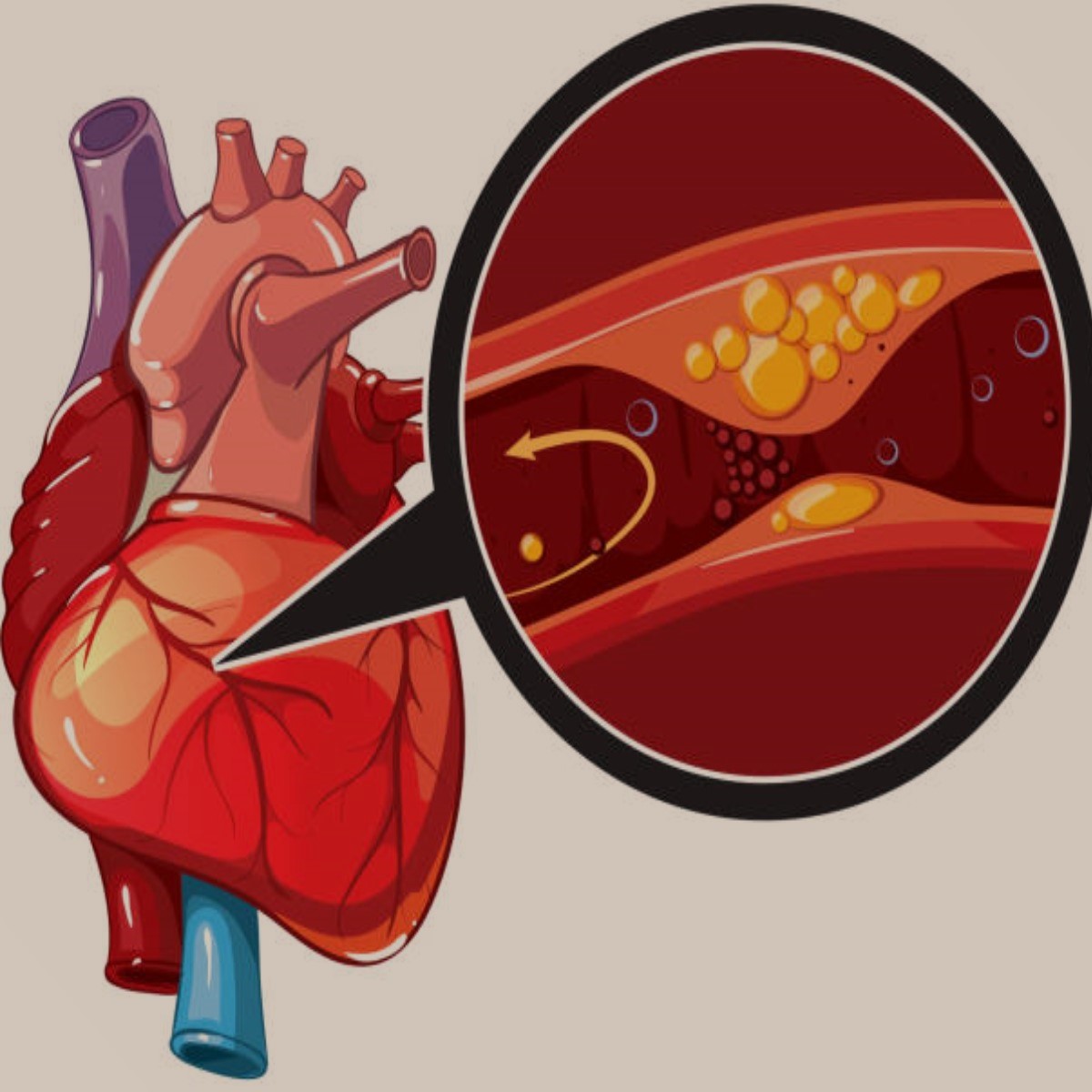What causes heart disease?
Heart disease is a collection of diseases and conditions that cause cardiovascular problems. Each type of heart disease is caused by something entirely unique to that condition. Atherosclerosis and CAD result from plaque buildup in the arteries. Other causes of heart disease are described below.
Arrhythmia causes
Causes of an abnormal heart rhythm include:
• diabetes
• CAD
• heart defects, including congenital heart defects
• medications, supplements, and herbal remedies
• high blood pressure (hypertension)
• excessive alcohol or caffeine use
• substance use disorders
• stress and anxiety
• existing heart damage or disease
Congenital heart defect causes
This heart disease occurs while a baby is still developing in the womb. Some heart defects may be serious and diagnosed and treated early. Some may also go undiagnosed for many years.
Your heart’s structure can also change as you age. This can create a heart defect that may lead to complications and problems.
Cardiomyopathy causes
Several types of cardiomyopathy exist. Each type is the result of a separate condition.
• Dilated cardiomyopathy. It’s unclear what causes this most common type of cardiomyopathy, which leads to a weakened heart. It may be the result of previous damage to the heart, such as the kind caused by drugs, infections, and heart attack. It may also be an inherited condition or the result of uncontrolled blood pressure.
• Hypertrophic cardiomyopathy. This type of heart disease leads to a thicker heart muscle. It’s usually inherited.
• Restrictive cardiomyopathy. It’s often unclear what leads to this type of cardiomyopathy, which results in rigid heart walls. Possible causes may include scar tissue buildup and a type of abnormal protein buildup known as amyloidosis.
Heart infection causes
Bacteria, parasites, and viruses are the most common causes of heart infections. Uncontrolled infections in the body can also harm the heart if they’re not properly treated.
What treatments are available for heart disease?
Treatment for heart disease largely depends on the type of heart disease you have as well as how far it has advanced. For example, if you have a heart infection, your doctor is likely to prescribe an antibiotic.
If you have plaque buildup, they may take a two-pronged approach: prescribe a medication that can help lower your risk for additional plaque buildup and look to help you adopt healthy lifestyle changes.
Treatment for heart disease falls into three main categories:
Lifestyle changes
Healthy lifestyle choices can help you prevent heart disease. They can also help you treat the condition and prevent it from getting worse. Your diet is one of the first areas you may seek to change.
A low-sodium, low-fat diet that’s rich in fruits and vegetables may help you lower your risk for heart disease complications. One example is the Dietary Approaches to Stop Hypertension (DASH) diet.
Likewise, getting regular exercise and quitting tobacco can help treat heart disease. Also look to reduce your alcohol consumption.
Medications
A medication may be necessary to treat certain types of heart disease. Your doctor can prescribe a medication that can either cure or control your heart disease. Medications may also be prescribed to slow or stop the risk for complications. The exact drug you’re prescribed depends on the type of heart disease you have. Read more about the drugs that may be prescribed to treat heart disease.
Surgery or invasive procedures
In some cases of heart disease, surgery or a medical procedure is necessary to treat the condition and prevent worsening symptoms.
For example, if you have arteries that are blocked entirely or almost completely by plaque buildup, your doctor may insert a stent in your artery to return regular blood flow. The procedure your doctor will perform depends on the type of heart disease you have and the extent of damage to your heart.
How can I prevent heart disease?
Some risk factors for heart disease can’t be controlled, like your family history, for example. But it’s still important to lower your chance of developing heart disease by decreasing the risk factors that you can control.
Aim for healthy blood pressure and cholesterol numbers
Having healthy blood pressure and cholesterol ranges are some of the first steps you can take for a healthy heart. Blood pressure is measured in millimeters of mercury (mm Hg). A healthy blood pressure is considered less than 120 systolic and 80 diastolic, which is often expressed as “120 over 80” or “120/80 mm Hg.” Systolic is the measurement of pressure while the heart is contracting. Diastolic is the measurement when the heart is resting. Higher numbers indicate that the heart is working too hard to pump blood.
Your ideal cholesterol level will depend on your risk factors and heart health history. If you’re at a high risk of heart disease, have diabetes, or have already had a heart attack, your target levels will be below those of people with low or average risk.
Find ways to manage stress
As simple as it sounds, managing stress can also lower your risk for heart disease. Don’t underestimate chronic stress as a contributor to heart disease. Speak with your doctor if you’re frequently overwhelmed, anxious, or are coping with stressful life events, such as moving, changing jobs, or going through a divorce.
Embrace a healthier lifestyle
Eating healthy foods and exercising regularly are also important. Make sure to avoid foods high in saturated fat and salt. Doctors recommend 30 to 60 minutes of exercise.Trusted Source on most days for a total of 2 hours and 30 minutes each week. Check with your doctor to make sure you can safely meet these guidelines, especially if you already have a heart condition.
If you smoke, stop. The nicotine in cigarettes causes blood vessels to constrict, making it harder for oxygenated blood to circulate. This can lead to atherosclerosis.


